Essential Oils for Cats
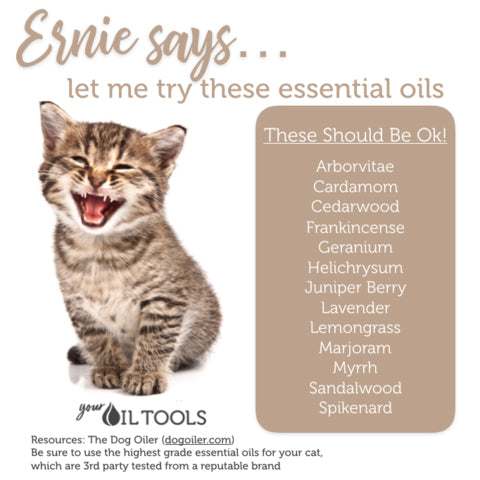
A recent post on Facebook went viral when a woman purchasing essential oils reported her cat experienced adverse affects. Here's a brief synopsis of essential oil safety for cats taken from two resources Janet Roark - Essential Oil Vet and the Dog Oiler .
For Cats:
- Dilute for topical use.
- Know your pet’s health status.
- Do NOT use oils on or near eyes, ears, nose, or genitals of your pet.
- Use a water diffuser for aromatic use and allow your pet to roam freely with an open door to the room.
- Caution should be used around animals that are pregnant, nursing, young, or on certain medications.
- Do not use oils topically on your pet if using a topical medication or dermal patch – this includes topical flea/ tick preventatives.
- Do not give any of the products containing xylitol (toothpaste, beadlets, etc.) to your pet.
- Only use Therapeutic Grade Essential Oils.
- Observe your pet’s behavior.
- In the event of an adverse reaction, dilute with a carrier oil – skin irritation is the most common, and most reactions resolve within 24–48 hours after oil exposure. Discontinue use of an oil if your pet shows signs of distress, drooling, squinting, rubbing their face, vocalization, shaking, vomiting, or diarrhea.
Dilute, dilute, dilute!
This is VERY important for dogs and small animals!!!
For cats, the preferred method for Essential Oil application is diffusion, using just a couple drops of oil in a diffuser with 100-200 drops of water. This helps keep cats from being overexposed to the very potent oils and their powerful effects.
Start out with your oils MORE diluted when introducing Essential Oils topically to your pet. Often times the dilution ratios need to be as much as 1 drop of Essential Oil to 100 drops of carrier oil. The safety of your pet is paramount.
You can use carrier oils such as Fractionated Coconut Oil, Extra Virgin Olive Oil, Almond Oil, etc. to dilute your essential oil.
You can always increase the concentration if the desired effect is not reached, but it is difficult to remove an Essential Oil once it has already been absorbed.
Remember, each animal is an individual and your pet may be more or less sensitive than others. Observe their behavior – they will tell you!
Cats metabolize and excrete things very differently than the rest of the animal family. Cat livers do not not have the enzymes to break down certain chemicals. And when the liver (and the body) does not recognize a substance, it immediately stores it somewhere until it can figure out what to do with it! This leads to toxicity, tumors, disease and extreme imbalances of the body. By the way, this is the case for humans and animals alike, but cats are much more sensitive.
Cats are particularly sensitive to a group of oxygenated compounds called ketones, phenols, alpha pinene, some monoterpenes, and carvacrol (a byproduct of d-limonene which is found in all citrus fruits and in many tree oils) which their livers can not break down.
Cats lack a liver enzyme (glucuronyl transferase) that humans and dogs have. This enzyme is necessary to metabolize and eliminate some essential oil constituents. Therefore, Melaleuca (Tea Tree) and all Citrus oils are toxic to cats.
Cats are also sensitive to high levels of phenols (which are found in Clove Bud, Oregano Peppermint and Thyme) and ketones (found in White Fir, Wintergreen, Rosemary, and Vetiver). Oils with high levels of these constituents may overwhelm the ability of the cat’s liver to properly metabolize and effectively eliminate them, which can result in toxic overload.
Cypress and Roman Chamomile also can be problematic for cats.
Do not use Blends with these oils (except in the few instances recommended in the next section).
If you decide to use any of the above-mentioned oils, dilute heavily. I recommend only using these oils for short periods of time when other oils are not giving needed support.
THE EXPERTS AGREE ON THE FOLLOWING:
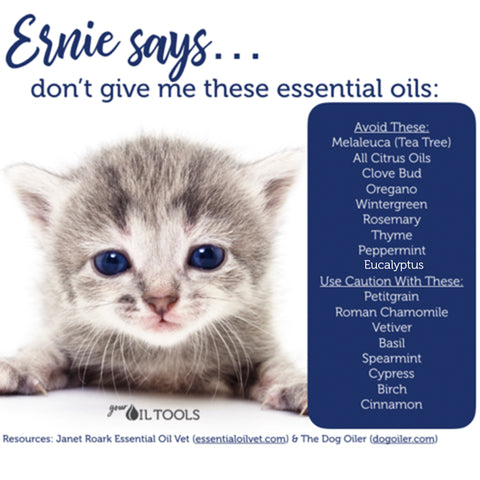
OILS TO AVOID FOR CATS
The experts agree to avoid the following oils and blends containing these oils:
Melaleuca (Tea Tree), Eucalyptus, Lemon, Grapefruit, Lime, Bergamot, Orange, Tangerine, Clove, Oregano, Cinnamon, Thyme, Rosemary, Wintergreen, and Birch.
These oils should be used with caution and at least avoided for topical and internal use:
Dill, Fennel, Basil, Roman Chamomile, Vetiver, Petitgrain, and Cypress.
Every animal is different and some may be more sensitive to certain oils than others.
In all cases to avoid toxic reactions with your cats, do the following:
- Get pure essential oils from companies that do 3rd party testing
- Use water based diffusers in an open room where animals can freely leave if the scent is bothering them (minimize usage to 3-4 drops)
- Stop administering oils if your cat is vomiting, excessive panting, depression, diarrhea, rashes, drooling, tremors. These can all be signs of toxicity
- Issues will be noticed between 20-30 minutes after diffusing a new oil
- Stop diffusing, ventilate the room if your animal experiences adverse reactions
- If significant, visit vet. If topical exposure try to remove as much off of cat as possible.
- Always dilute essential oils for topical use for cats
- Don’t feel pressure to use essential oils with animals.
TOP OILS TO USE WITH CATS
Arborvitae, Cardamom, Cedarwood, Frankincense, Geranium, Helichrysum, Juniper Berry, Lavender, Lemongrass, Majoram, Myrrh, Sandalwood, Spikenard.
In all cases, start small, use the best oils, and observe your cats' behavior while diffusing certain essential oils.
To see Janet Roark's full video reacting to the post about Ernie the Cat, click here.
For more information and products that support the use of essential oils for cats, check out our DIY kits, Make & Create books, and MyMake Recipe brochures.
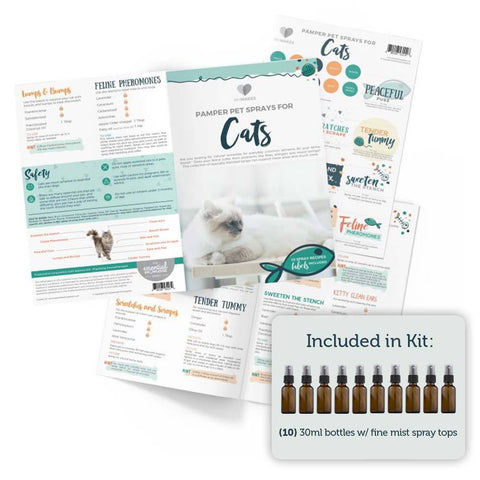
**These statements have not been evaluated by the Food & Drug Administration and are for educational use only. For specific questions about your animals health, consult your trusted veterinarian.**


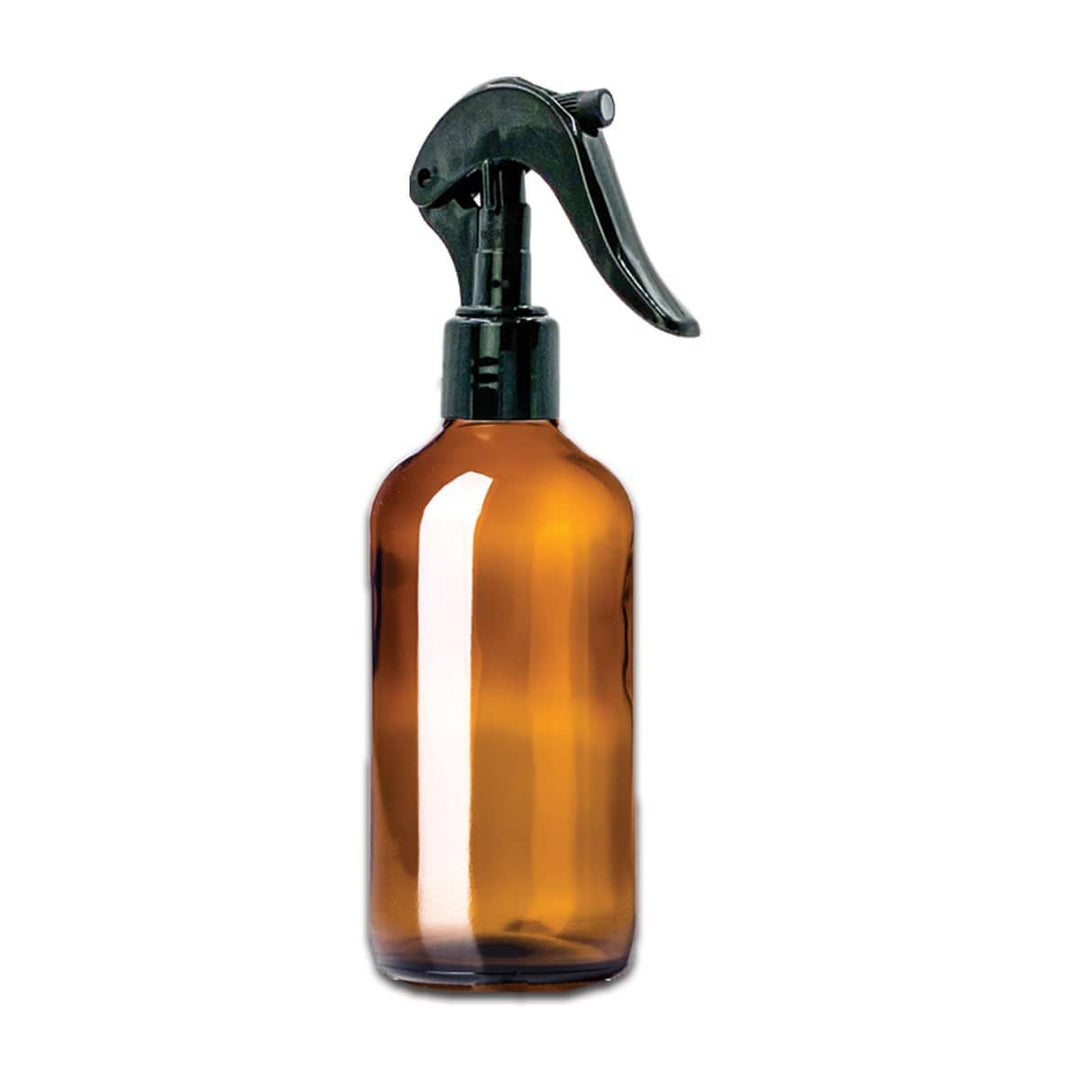
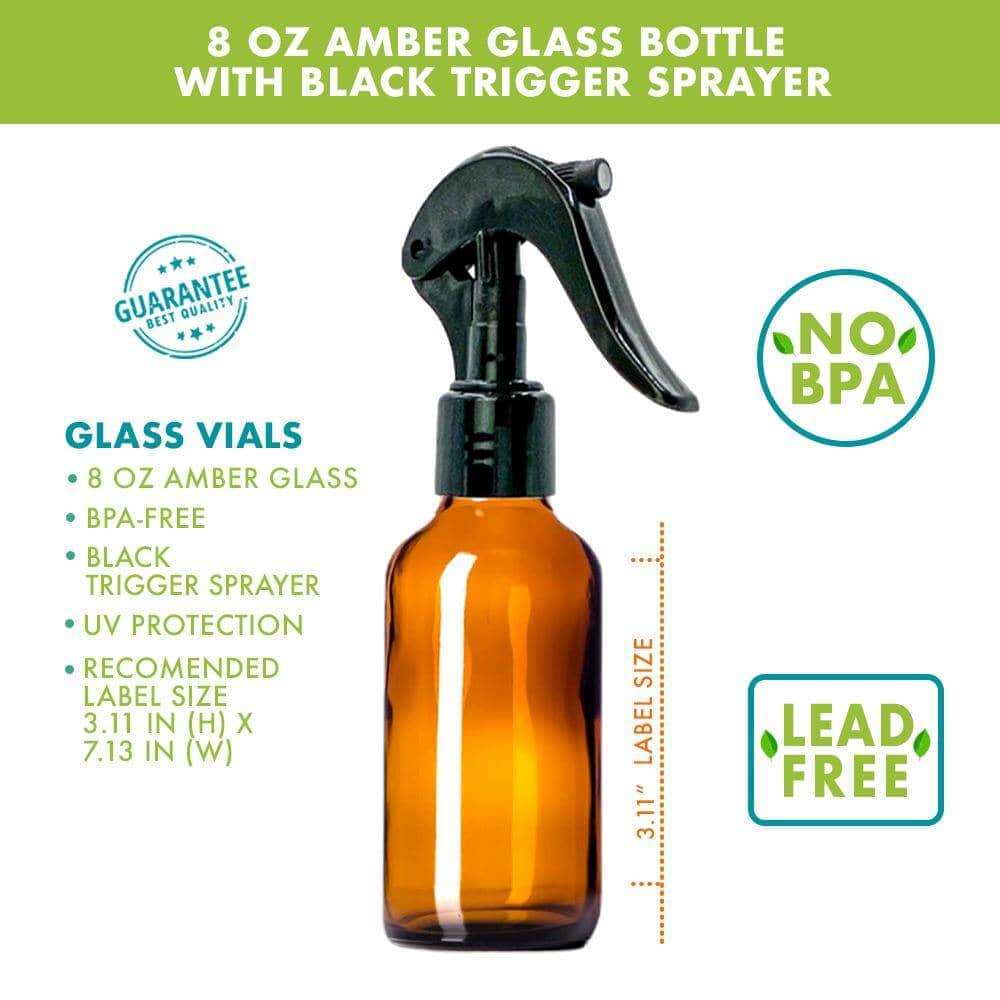

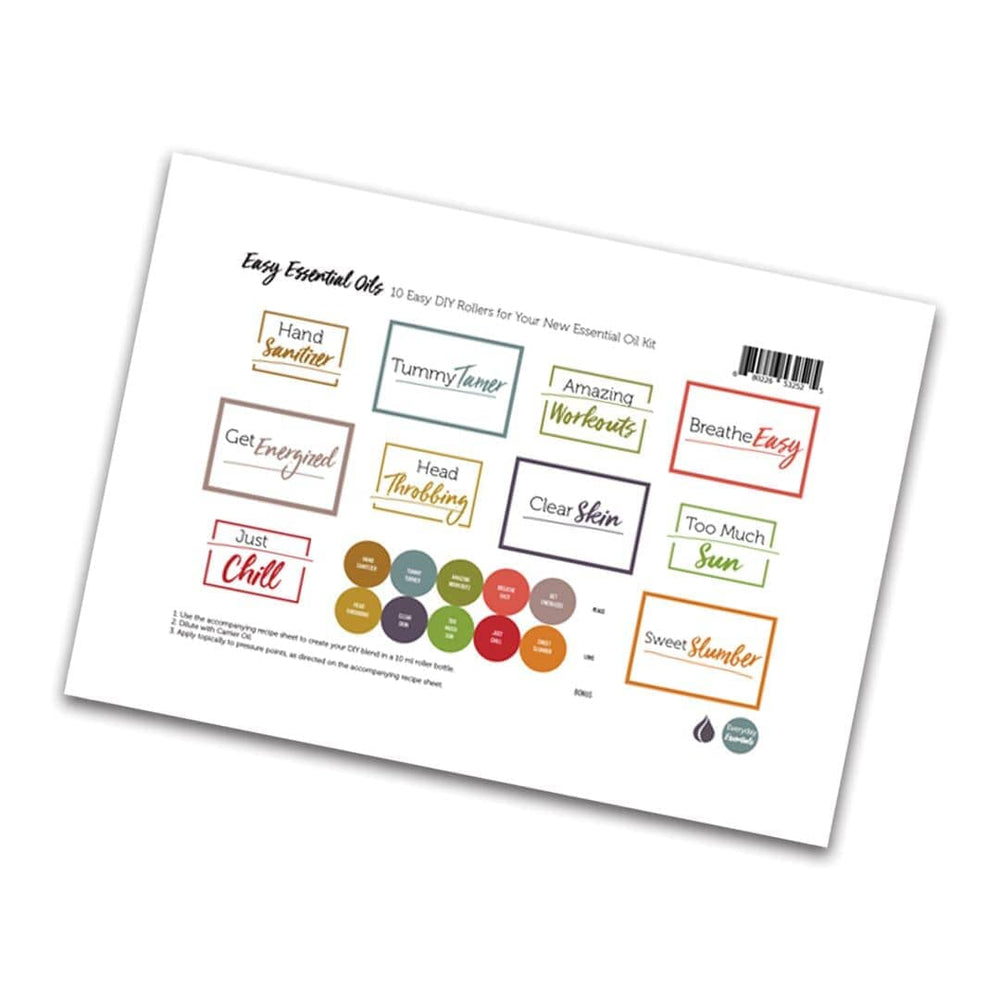
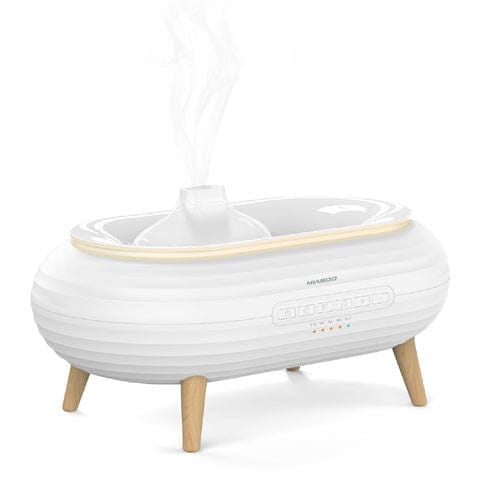







Leave a comment